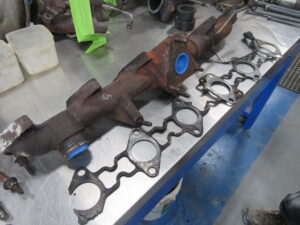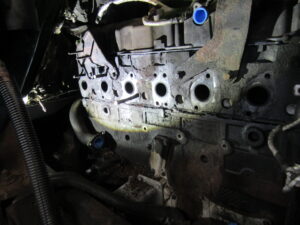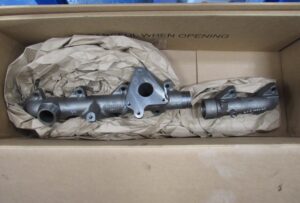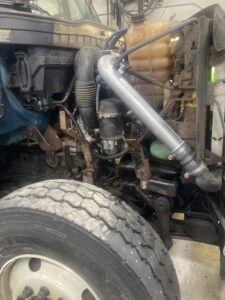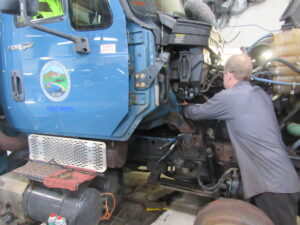
Among the daily tasks, projects, and weather-related responses that make up a workday at DPW, equipment emergencies can happen too.
Case in point, a major malfunction with one of our heavy-duty International 7400 trucks. The driver of this particular vehicle came to the garage experiencing the leakage of toxic exhaust fumes into his cab and an extremely loud and rough-running engine.
Without wasting a moment, our fleet supervisor Matt Gray, raised the hood and began assessing the entire engine and related components. Using a high-powered flashlight and an extended mirror, Matt was able to see under and within the large but cramped engine compartment to find a thick layer of built-up carbon around the right side of the engine that stretched back to the firewall of the cab. Closer inspection revealed that the engine manifold itself was the source of the carbon and that three of the large bolts that attach the manifold to the engine had broken off! This truck was officially unsafe to drive and needed priority service.
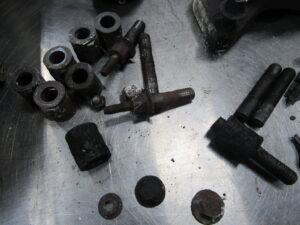
This repair was not going to be easy as the access to the manifold would require removal of the front tire, turbo charger assemblies, heat shields, fan belt pulleys, emission devices, electrical wiring and more.
Matt explained that although an exhaust manifold is not a “moving part” the high temperatures of the engine and exhaust do cause the component to slightly expand when in use and that over time the bolts holding it in place can loosen or break off. Although rare, it can happen. The resulting broken bolts prevented the manifold from being held tight against the engine and thus allowed carbon and exhaust fumes to seep out into the engine compartment and cab instead of the through the exhaust pipes.
Once full access was achieved, Matt was able to remove the damaged manifold and the remains of the broken bolts and replace it with a brand new one along with new bolts that were purchased from a local distributor. The other engine parts and components that were covered in carbon were then cleaned, checked and the engine reassembled.
Best of all, this major repair was successfully completed in-house with minimal downtime on a vital piece of DPW equipment.
Thank You Matt!
